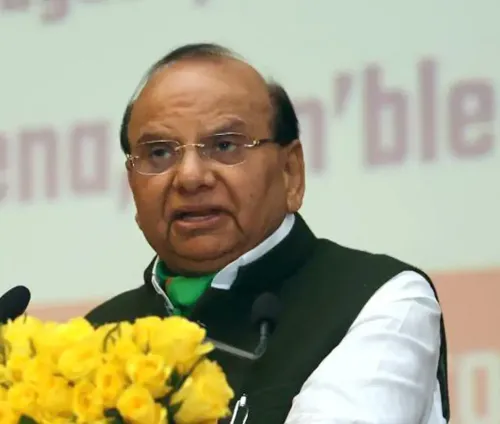Is Assam Ready to Use a 1950 Law for Deporting Illegal Immigrants?

Synopsis
Key Takeaways
- Assam is invoking a 1950 law to expedite deportation processes.
- Judicial processes are being bypassed under the new policy.
- Concerns regarding minority rights and harassment are significant.
- The AIUDF has raised alarms about wrongful detentions.
- Legal scrutiny over the constitutionality of the policy is expected.
Guwahati, June 7 (NationPress) In a decision that could ignite political controversy, the Assam government has opted to leverage a little-known statute from 1950 — the Immigrants (Expulsion from Assam) Order — to accelerate the removal of undocumented immigrants, circumventing the standard judicial framework.
Chief Minister Himanta Biswa Sarma revealed this change on Saturday, asserting that the process of identifying and expelling "foreigners" will now proceed more swiftly due to previous delays linked to the National Register of Citizens (NRC).
“From now on, if an individual is identified as a foreigner, we won't have to seek approval from the foreigners’ tribunal to initiate deportation,” Sarma explained.
He referred to a prior Supreme Court ruling regarding Section 6A of the Citizenship Act, which clarified that the Assam government is not required to obtain judicial consent for every deportation.
He highlighted the Immigrants Expulsion Order, established in 1950, which he stated empowers district commissioners (DCs) to issue deportation orders independently of the judiciary.
“Our legal team had not informed us about this provision earlier. We recently discovered it and are now taking it very seriously,” he remarked.
The Chief Minister confirmed that deportations have already commenced under this renewed strategy, although individuals with ongoing court cases have yet to be impacted.
This policy shift represents a significant change from the traditional procedure that involved foreigners’ tribunals — quasi-judicial entities tasked with determining the status of suspected undocumented immigrants.
Previously, individuals labeled as “foreigners” by these tribunals could appeal the decisions in the High Court and the Supreme Court.
However, this new approach has raised alarms among minority communities and political factions.
The All India United Democratic Front (AIUDF), a minority-focused opposition party, has recently appealed to Assam Governor Lakshman Prasad Acharya, asserting that there is a widespread campaign of harassment against Indian Muslims under the pretext of targeting illegal immigrants.
In a memorandum to the Governor, the party claimed that individuals, especially from the Muslim community, were being detained, interrogated, and arrested based on mere suspicion, frequently without substantial evidence or due legal process.
In many cases, detainees were released after confirming their status as Indian citizens, the AIUDF noted.
As Assam advances with the implementation of the 1950 law, legal experts and human rights advocates are anticipated to examine the constitutionality of bypassing tribunals — a move that could incite additional litigation and public discourse.










